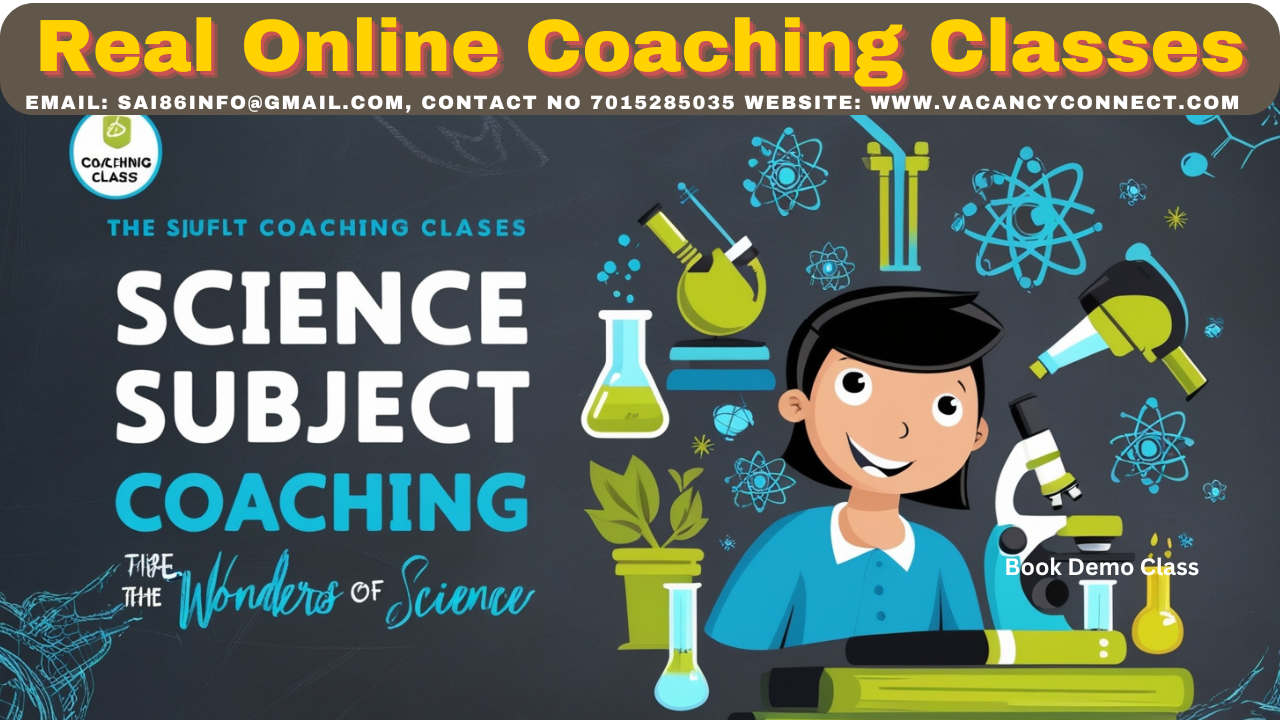Introduction to Science as a Subject
Science is the systematic study of the natural world through observation, experimentation, and analysis. It is a subject that unlocks the mysteries of the universe, explains phenomena, and provides solutions to complex problems. From understanding the laws of motion to exploring the secrets of DNA, Science forms the foundation of progress and innovation.
In this blog, we’ll explore the importance of Science as a subject, its key branches, and how it impacts our daily lives. Whether you’re a student, teacher, or lifelong learner, the wonders of Science are all around us, waiting to be discovered.

Importance of Science
Science is more than just a subject; it is a way of understanding the world. Here’s why Science as a subject is so important:
Enhances Critical Thinking
Science develops analytical and problem-solving skills by encouraging us to ask questions, test hypotheses, and draw conclusions.Drives Technological Advancements
Modern technology, from smartphones to space exploration, is the result of scientific discoveries. Understanding Science as a subject is crucial for innovation and progress.Improves Quality of Life
Science has revolutionized healthcare, agriculture, and transportation, improving our quality of life and extending human lifespans.Encourages Curiosity and Exploration
Science inspires curiosity about the world, encouraging individuals to explore new ideas, conduct experiments, and make groundbreaking discoveries.Solves Global Challenges
Climate change, renewable energy, and medical breakthroughs are just a few examples of how Science as a subject helps address global challenges.
Key Branches of Science
Science is divided into three main branches, each focusing on different aspects of the natural world. Let’s explore these branches in detail:
1. Physics
Physics is the study of matter, energy, and the fundamental forces of nature. It explains how the universe works, from the motion of planets to the behavior of atoms.
- Applications of Physics:
- Designing technology like computers and lasers.
- Understanding natural phenomena like gravity and electricity.
Examples:
- How does an airplane fly?
- What causes lightning?
2. Chemistry
Chemistry is the study of substances, their properties, and how they interact with one another. It plays a key role in understanding the composition of matter and the reactions that occur in the world around us.
- Applications of Chemistry:
- Creating medicines and vaccines.
- Developing materials like plastics and metals.
Examples:
- Why does salt dissolve in water?
- How do chemical reactions produce energy?
3. Biology
Biology is the study of life and living organisms. It explores everything from microscopic cells to complex ecosystems, helping us understand the diversity of life on Earth.
- Applications of Biology:
- Advancing medical science and biotechnology.
- Conserving wildlife and ecosystems.
Examples:
- How do plants produce oxygen?
- What causes diseases, and how can they be treated?
How Science Shapes Our Daily Lives
Science isn’t just confined to laboratories or textbooks; it influences every aspect of our daily lives.
- Healthcare: Vaccines, medicines, and diagnostic tools are products of scientific research.
- Technology: Smartphones, the internet, and AI are all rooted in scientific principles.
- Energy: Renewable energy sources like solar and wind power help combat climate change.
- Transportation: Cars, trains, and airplanes rely on scientific advancements for safety and efficiency.
- Food: Science improves agricultural techniques, ensuring food security for a growing population.
Tips to Master Science as a Subject
1. Focus on Understanding Concepts
Science is about understanding “why” and “how” things happen. Don’t just memorize facts—focus on the underlying principles and theories.
2. Perform Experiments
Practical experiments bring Science to life. They help you see theories in action and reinforce your learning.
3. Stay Curious
Ask questions about the world around you. Curiosity is the driving force behind scientific discovery.
4. Use Visual Aids
Diagrams, models, and videos can make complex concepts easier to grasp. Use visual aids to understand processes like photosynthesis, the water cycle, or chemical reactions.
5. Stay Updated
Science is constantly evolving. Keep up with the latest discoveries and advancements to stay informed and inspired.
Career Opportunities in Science
Science opens doors to a wide range of career opportunities. Here are a few fields you can explore with a strong foundation in Science as a subject:
- Medicine and Healthcare: Doctors, nurses, pharmacists, and medical researchers.
- Engineering: Mechanical, civil, electrical, and aerospace engineering.
- Technology: Data science, artificial intelligence, and software development.
- Environmental Science: Conservationists, climatologists, and renewable energy specialists.
- Research and Academia: Scientists and educators contributing to new discoveries and knowledge.
Conclusion
Science as a subject is the gateway to understanding the universe and improving our lives. Whether it’s the laws of physics, the wonders of chemistry, or the complexities of biology, Science equips us with the tools to solve problems, innovate, and explore.
By studying Science, you not only expand your knowledge but also develop skills that are essential for addressing global challenges and making the world a better place.
So, embrace the wonders of Science, stay curious, and keep exploring—it’s a journey of discovery that never ends.

